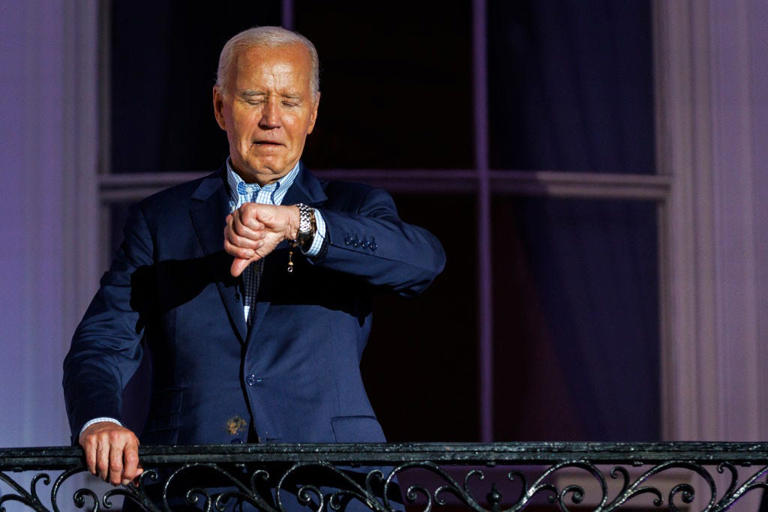According to a report by The Wall Street Journal, President Joe Biden canceled an early evening meeting with German Chancellor Olaf Scholz at the last minute during the G7 summit in June 2022, stating that he needed to go to bed. This informal gathering, which was intended to discuss the ongoing crisis in Ukraine, took place in Germany and was supposed to be a low-key affair. However, the cancellation has fueled ongoing scrutiny regarding Biden’s mental acuity and his capability to serve a second term as President.
The meeting’s sudden cancellation surprised many. Two unnamed sources present at the event reported that Secretary of State Antony Blinken announced Biden’s absence, explaining that the President needed to rest. The announcement caught Chancellor Scholz and his aides off guard. A spokesperson for the State Department denied the report when asked, while another official claimed that the White House had informed participants in advance about Biden’s inability to attend. Despite these conflicting accounts, the incident has raised questions about the President’s health and his ability to maintain a demanding schedule.
Business Insider was unable to independently verify the details of the report or the specific reasons behind Biden needing to rest. Additionally, the White House has not responded to requests for comment on the matter. Previously, Axios reported, citing sources close to the President, that Biden operates most effectively between 10 a.m. and 4 p.m. and has difficulty functioning outside of this timeframe. This aligns with observations that the White House has been reducing Biden’s daily schedule and shielding him from impromptu meetings to manage his workload more effectively.
Further fueling the controversy are reports from CNN and The New York Times that Biden has told governors he needs more sleep and should avoid holding events after 8 p.m. These adjustments come in the wake of a particularly challenging debate against Donald Trump, marked by verbal missteps and confusing statements, which has intensified scrutiny over Biden’s fitness for office. Despite these concerns, Biden has dismissed questions about his competence as a presidential candidate. In a taped interview with ABC’s George Stephanopoulos, he asserted that he would only step aside if the “Lord Almighty” asked him to.
Nevertheless, concerns about Biden’s mental acuity have been echoed by some high-profile Democratic donors. Abigail Disney, the grandniece of Walt Disney and a longtime Democratic donor, publicly announced that she would halt donations to the party until a replacement for Biden is found at the top of the ticket. This sentiment reflects a broader unease within certain factions of the Democratic Party about Biden’s ability to lead effectively as he approaches a potential re-election campaign.
As Biden heads into the upcoming NATO summit, he faces intense scrutiny. The summit, which will focus on outlining strategies for the Ukraine crisis and addressing the shifting China-Russia dynamic, represents a significant challenge for the President. Such high-stakes international engagements would typically be within Biden’s wheelhouse, given his extensive experience, including his tenure as Chair of the Senate Foreign Relations Committee. However, the current scrutiny of his mental sharpness and overall capability adds an additional layer of pressure.
The NATO summit, where Biden will host alliance leaders in Washington for three days of discussions and public activities, will culminate in a solo press conference on July 11th. This event will serve as a critical public test of Biden’s ability to manage complex international issues and maintain the confidence of both domestic and global audiences. With the backdrop of concerns about his health and performance, Biden’s handling of this summit could significantly impact his political standing and the broader perception of his presidency.
